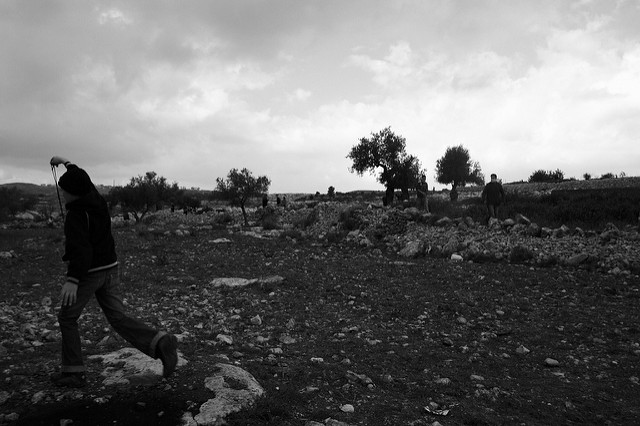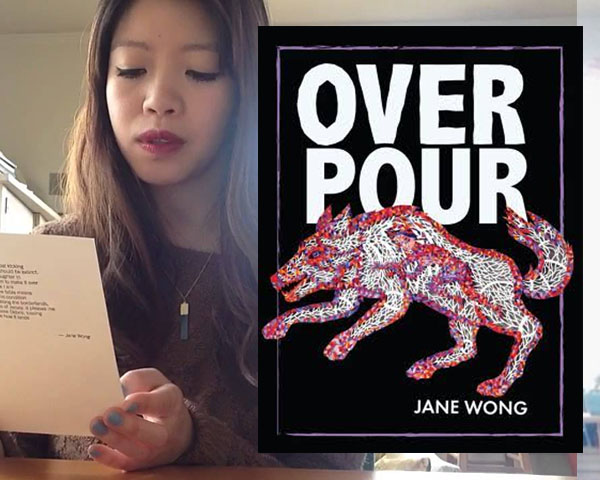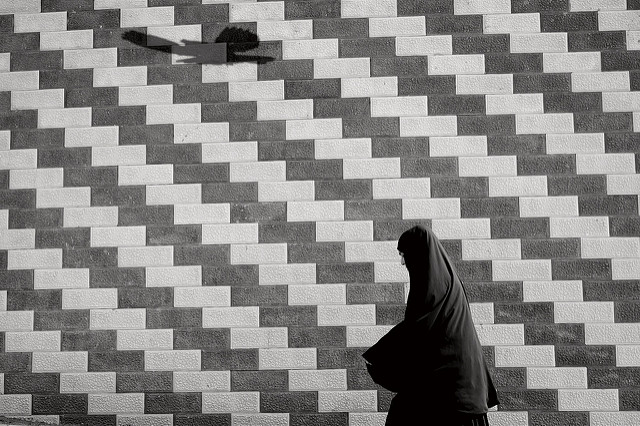On building bridges in liminal spaces, and carving new pathways through the unknown.
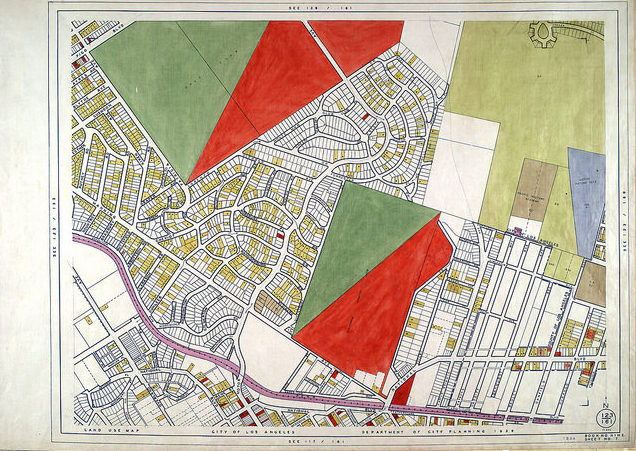
July 14, 2017
Last week, our roundup focused on the importance of building bridges with ourselves and the world around us. This week, we’re thinking about how to build bridges in liminal spaces, where the way forward may not be so clear. From Li-Young Lee’s devotional poem on the meaning of “The Word,” to Liz Barney’s article on building sustainable encampments for Hawaii’s homeless, to Karissa Chen’s voyage into the uncertainties of her familial past, this week’s link collection is about how to carve new pathways through the unknown, and the moments of connection that give us the courage to do so.
Changing Places in the Fire by Li-Young Lee
This month’s Poetry Magazine includes a liminal poem from Lee’s 2008 collection, Behind My Eyes. In this poem, Lee glides through tensions between the all-encompassing notion of the biblical “Word” and the limits of language–the spiritual and the embodied–and how the dead sustains itself through the living. Speaking to a “sparrow with a woman’s face,” the speaker recalls:
My mind is several minds, I say,each abiding differently: in your eyes,in the smell of your hair, in your voicemoving over me, in my voice moving over you.She says, Don’t look at your hands.Watch the shadows they make.
Hawaii’s largest homeless camp: rock bottom or a model refuge? by Liz Barney
Last week, The Guardian published a story about Pu’uhonua o Waianae, the largest homeless encampment in Hawaii. Run by a woman named Twinkle Borge, the camp and its leader has received recognition for practicing “pu’uhonua…an ancient Hawaiian term for a place of refuge, or a sacred place where miscreants can find forgiveness and a clean slate.”
Cities such as Seattle and Portland have popularized the concept of legal campgrounds for homeless people, and Hawaii lawmakers are considering a similar solution on the islands – with a local twist. The campsites would be known as Pu’uhonua safe zones, and Borge’s encampment would be the prototype…
Yet while residents acclaim it as a novel community that incorporates ancient Hawaiian principles, it is now at risk of being swept away.
Octavia Butler: Writing Herself Into The Story by Karen Grigsby Bates
In this clip from NPR’s Morning Edition, Bates chronicles Octavia Butler’s life and legacy as one of the first black female science fiction writers to reach national prominence. From reporting the age in which Butler grew up–a time when “legal segregation was dead, but de facto segregation was very much alive”–to Butler’s discovery of writing, Bates interweaves Butler’s challenges and triumphs into a portrait of the artist herself.
That was astonishing, because the world was not full of well-paid science fiction writers, and with very few exceptions, all of those were male and white. No one like Butler existed in the genre. And that didn’t seem to hold Butler back one bit. “I don’t recall every having wanted desperately to be a black woman fiction writer,” she told Rose. “I wanted to be a writer.”
Music Monday: How Ameriie’s Music Gave Me a Sense of Belonging by Sally Wen Mao
In this short reflection, Mao discusses growing up Chinese American in “suburban California” and how encountering Ameriie’s music helped her cope with feeling like an adolescent outcast. For Mao, her “only hope” for belonging manifested “in fantasy”:
…and the R&B Princess was the fantasy of that empowered young woman of color making her way in the world, demanding her visibility. As much as I felt like I could see myself in them more than in the Britneys or Avrils, they still felt beyond my reach — a part of an American cultural imaginarium that didn’t include people who looked like me.
Who Does He Favor? by Rachel Masilamani
In honor of its 20th anniversary and July 2017 Smithsonian Asian American Literature Festival, the Smithsonian Asian Pacific American Center and the Association for Asian American Studies has commissioned a series of 20 “literary addresses” on the state, future, and importance of Asian American literature. Masilamani’s cartoon address portrays the daily challenges of raising a multiracial family, which draws from the protagonist’s upbringing, as well as the current political climate.
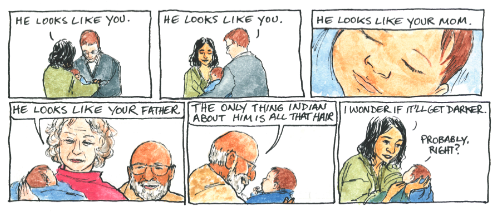
My Grandfather’s Fateful Goodbye, Reimagined by Karissa Chen
Chen dives into her family history in search of her grandfather, who left mainland China for Taiwan when he was 19. As she reflects on the experience of researching her family history for the essay, Chen interweaves her grandfather’s narrative with her own, uncovering the limits of memory that frequently fracture intergenerational histories and baring the surprising (and sometimes shocking) revelations that emerge from the fissures.
Two paragraphs into my first attempt at this essay, I realize I know few facts. I know little about Shanghai in 1949, and I know even less about the details of my grandfather’s departure. I decide that I must be historically accurate in order to tell this tale. I write my mother, who lives in Beijing, and my two aunts, to ask them what they know. I ask them about the nitty gritty—who was the man who accompanied my grandfather? Why did my grandfather decide to leave? What was my great-grandmother like?
Must-listen Q&A with Ellen Oh, co-founder of We Need Diverse Books, with Phoebe Yeh and Ellen Oh
In this interview, Yeh and Oh discuss the founding of We Need Diverse Books and Oh’s experience editing WNDB’s latest, Flying Lessons & other Stories, an anthology of works by writers from traditionally marginalized communities. Tune in to hear Oh speak on works published in the anthology, the consequences of underrepresentation in children’s literature, and the unique role audiobooks can play in forming literary community.
People are embracing this book as filling a need that sometimes they didn’t even know they had. These are stories for everybody…You have people who read the [stories] and realize that stereotypes they’ve had were completely wrong. Maybe people who they thought they could not relate to, they realize they can relate to. They’re brought into an experience that makes them laugh and cry and get mad, and all of the sudden, they’re empathizing with someone who maybe they’ve been othering their entire life.

